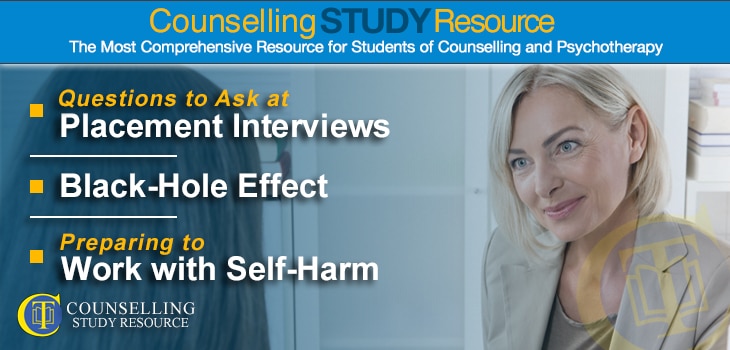The Black-Hole Effect (starts at 15.20 mins)
Working online as a counsellor – an intrinsic part of the digital counselling revolution – requires an awareness of various theories that you may not have learned about in your training for face-to-face work.
In the previous podcast, we looked at the disinhibition effect – and now we continue this dive into online-specific theories turning to the black-hole effect.
This term describes the situation when a client disappears and never comes back, i.e. there is an unplanned and very abrupt ending.
This could happen between sessions or even mid-session, given the lack of joint physical presence in online and telephone working.
Rory describes an example of how he experienced this phenomenon himself while involved in a leisure activity, online gaming.
The black-hole effect describes not just the hole left by the ‘missing’ client but also the multiple feelings of deficit that may arise in the therapist as a result. For example, you may wonder whether you did something wrong, and feel concern for the client’s wellbeing.
Like the online disinhibition effect, the term ‘black-hole effect’ was first coined by American psychologist John Suler – in this case, in 1997 in his blog entry entitled ‘The Black Hole of Cyberspace‘. (If you click on this link, our top tip is to scroll down!)
The black-hole effect describes not just the hole left by the ‘missing’ client but also the multiple feelings of deficit that may arise in the therapist as a result.
It’s important to plan for the possibility of an unplanned, abrupt ending at the contracting stage, ensuring that both parties have a second means of communicating with each other in case of technology failure.
It’s also good practice to contract with the client on what action they would prefer you to take if they don’t ‘turn up’ for a session (e.g. do nothing or call an agreed number).
You can find an article about this phenomenon on the Counselling Tutor website.
Rory has also created a handout that you can download here, or access through the Counselling Study Resource.
And you might like to check out our course, Online and Telephone Counselling, which – we are proud to announce – has recently gained Quality Checked recognition from the National Counselling Society.





